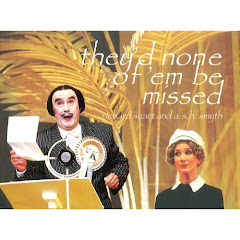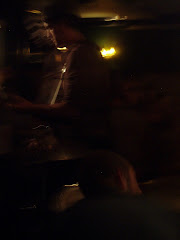It really is amazing how quickly foreign managers and players pick up the worst English language football clichés when they come to manage or play for clubs in the Land of the World's Worst Football Clichés. Zola's missive brought to mind a piece I wrote for The Lizard, back when Fabio Capello had just been appointed England manager, which (seeing how I wrote it 'n' all) for your viewing pleasure (and to fill some space on this page) I will exclusively republish here (so that your computer doesn't crash when you CLICK THIS LINK):
How to speak Footballese
Essential lessons for the new England manager
by Dominic Hilton
Thursday, December 13, 2007
The fashionable suggestion that the new manager of the England football team should actually be able to speak English is, to my mind, hopelessly racist. The ability to speak English has never been required of England’s football players. Why single out the manager all of a sudden?
I’ll tell you why: because the two leading candidates for the job – Fabio Corleone and Marcello Lipsmacker – happen to be Italian persons of Italian persuasion, that’s why. Questioning the ability of these two footballing masterminds to lead the England team to international glory just because they can’t ask for directions to Wembley Stadium without sounding like that character in 'Allo 'Allo who worships Mussolini and chases all the women around Nazi HQ is bigoted xenophobia on a new and frightening scale (and frankly, I’m astonished that London’s Mayor Livingstone hasn’t organised a boycott of the entire English nation, yet).
In the modest opinion of this column, instead of abusing these foreign gentlemen for being Italian persons of Italian persuasion, we should be doing everything we can to help them to integrate, assimilate and melt into our culture by teaching them the rudiments of footballese in the paragraphs below.
So, in the spirit of shared mutual understanding and global football peace, here is a list of words and phrases that I am confident will help the new England manager bring home the World Cup (to England):
“Give it some welly.” A common phrase with agricultural origins. Due to massive investment shortfalls, in strict arable terms most football pitches in England are actually big bogs of muddy swamp peat or sod where cows go to pat. As a consequence, English footballers traditionally play the game wearing Wellington boots. To “give it some welly” is to hooooooooooooooooooof* the football (“it”) with one of your (two) Wellington boot(s) (“welly” or “wellies”). Whether or not the “welly” needs to be actually attached to your foot in order to “give it some” continues to be a subject of heated debate.
“Get stuck in.” This popular phrase has similar origins to “Give it some welly.” To “get stuck in” is literally to get stuck in the mud because your Wellington boots have sunk into the pitch, rendering you immobile.
“At the end of the day.” A phrase used by footballing people at the beginning of every single sentence they ever speak. For example, “At the end of the day, give it some welly.” or “At the end of the day, get stuck in.”
“It’s a game of two halves.” This phrase recalls the days when underprivileged working-class children used to practice their skills in the streets of Newcastle using an orange (or grapefruit) because their parents were too busy in the pub blowing all their child support money on brown ale to be able to afford to buy their kids a real football. Inevitably, the orange (or grapefruit) would split in half. Hence, “It’s a game of two halves.”
“The boy done good.” “Good” is cockney rhyming slang for “Robin Hood”. To “do” Robin Hood is to have had sexual intercourse with him. So, strictly speaking, “The boy done good” means “The boy is homosexual.”
“Hooooooooooooooooooooof!” From the Latin Huv. Shouted at footballers who are playing like donkeys (donkeys have hoofs). The traditionally poor standard of English football makes “Hooooooooooooooooooooooooof!” a popular chant with fans all over the land.
“You’re playing like a fairy.” From the chapter of the same name in J.M. Barrie’s childrens' classic Peter Pan.
“The Gaffer.” The gaffer is a senior member of a club’s staff who makes lots of gaffs. (Different from “The Guffer,” who is a player who uses his flatulence to propel himself down the wing.)
“He’s only gone down the wing and stuck it in the net, hasn’t he?”
A meaningless phrase. Also see: “He only gone up the wing and stuck it in the net, hasn’t he?”
“Wing(s).” A hairstyle that acts like a parachute when a player is dropped from a great height.
“Giggsy” [etcetera] The obligatory attaching of a ‘y’ (pronounced: eeeeeeeeeeeee) to the end of every player’s name. So the current England team are officially known as: Robinsony, Richardsy, Ferdinandy, Terryy, Coley, Lampsy, Stevey, Becksy, Rooneyy, and so on until you forget whatever you planned to sayy.
“It’s a funny old game.” Literally, it’s funny when old people try to play the game of football. English comedy is full of classic routines involving geriatric pensioners with Zimmer frames trying to run around a football field and breaking their hip replacements.
“Man on.” See “The boy done good.”
“Kick-off.” A term of abuse, meaning “Go away!”
“By far the greatest team the world has ever seen.” Sung by fans of teams like Scunthorpe United.
“Couldn’t score in a brothel.” An insult never thrown at England star Wayne Rooney, who famously scored in a brothel with a granny called Auld Slapper.
“WAG.” The thing a footballer’s wife or girlfriend does with her painted finger when he refuses to hand over his credit card.
“Selling the dummy.” Literally, off-loading your stupidest player.
“Bung.” This needs no translation to Italians.
© lizardmagazine.com, 2007







No comments:
Post a Comment